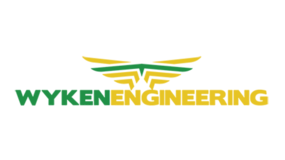Results of the MAA consultation survey
The Midlands is home to one of the few aerospace superclusters, with over 300 companies forming one of the largest regional networks internationally. The cluster grew rapidly in the last 15 years, with output doubling and employment increasing by more than half. The region is a leader in advanced aerospace manufacturing and its growth was fuelled by demand for high-technology aero engines, complex aircraft systems and precision-engineered components from global giants such as Airbus and Boeing.
Recently, the cluster has been hit by a triple threat, first from Brexit, then the suspension of the Boeing 737 MAX aircraft programme and, most devastatingly, COVID-19. With over 90% of aircraft grounded, the impact on demand has sent shockwaves through the supply chain.
The Midlands cluster could be one of the worst hit by the market meltdown unless we work together to ensure the supply chain not only survives the current crisis but comes out of it with the capabilities, capacity, technology and talent required to remain competitive and bounce back.
In May, we announced that we are working at pace on a five-point rescue and recovery plan for aerospace and we recently invited supply chain companies* to participate in an in-depth survey to help us identify the priorities so we could tailor the plan accordingly.
Priority 1: Safe and productive workplaces
The top priority for 70% of aerospace supply chain companies is creating safe and productive workplaces for employees. Many companies have already adapted as most have continued to operate during the lockdown and have needed to ensure the welfare of their employees while delivering for aerospace customers and manufacturing hundreds of thousands of parts for medical ventilators required nationally.
Respondents said they recognise the importance of the significant changes required in the new world of work including policies around flexible working, retraining and redeploying talented people. They also value the sharing of best practice across the supply chain so companies can support each other with adopting new ways of working.
Over half of respondents said they anticipated that ensuring safe and productive workplaces would remain the most important focus of their business into 2021, indicating the scale of changes required.
Unfortunately, many aerospace companies also anticipate having to make significant redundancies this year and, without the types of government intervention being provided by other countries, up to a third of employees across the supply chain could lose their jobs. It is vital that our region is able to retain the talent required for when demand picks up again, so that the Midlands can remain competitive in the international aerospace market.
Priority 2: New business
Winning new business is a high priority for 40% of aerospace supply chain companies right now and is expected to increase in importance into 2021. Many companies invested heavily, in recent years, in response to strong market forecasts. New factories were built, new equipment installed and talented people received extensive training. Suddenly, there is significant idle capacity and companies need to bolster their orderbooks in order to survive.
The majority of respondents want to see the diverse and advanced capabilities of UK aerospace suppliers promoted to a global market. Many said they would also value the sharing of collective market intelligence, something we do actively at the MAA, as well as support for diversifying into new markets, the creation of shorter, more agile supply chains and the re-shoring of work packages, bringing significant manufacturing back to the UK.
Most respondents seemed unconvinced by the prospect of carrying out business development activities virtually. It is possible that some consider the current barriers to travel to be a short-term issue and are not yet willing to explore long-term, virtual solutions. Face-to-face interactions have always been highly valued in the aerospace industry due to the level of trust required, and may remain hard to replace with screens. This reluctance could affect the take-up, for example, of the virtual meetings set to replace Farnborough International Airshow this year.
Priority 3: Cashflow
Finance is, unsurprisingly, another key priority for the aerospace supply chain right now, with companies needing to take decisive steps to maintain cashflow when demands for many parts have slowed significantly or stopped.
The top issue is ensuring customers pay on time for products and services that have been agreed. Insights we have from working directly with aerospace companies across the region indicate that not all customers are paying suppliers as they should.
Priority 4: Resilient supply chains
Aerospace suppliers want much better visibility of future requirements from customers to aid their own planning. Respondents rated the importance of ensuring a resilient supply chain as a higher priority next year and we believe this is because much less is certain in terms of the impact on demand beyond 2020. Rather than just receiving top-down, unnegotiable instructions, the supply chain wants to work in partnership with customers to plan the careful scaling down of operations which may then help them be more prepared for ramping back up when the time comes.
Respondents said they also want best practice and opportunities to be shared so companies can support each other, helping the supply chain to survive and remain healthy.
Priority 5: Innovation for productivity and diversification
Innovation was seen as less critical compared to all the other areas for 2020, with just 20% of respondents saying it was a top priority. Many people consider innovation to be about preparing for future opportunities, for example through R&D. With such a strong focus on ensuring cashflow to ensure survival, it’s understandable why anything deemed ‘unnecessary right now’ would be put on hold.
However, in the MAA’s view, innovation is not just about the future, it’s about performing better now. It could be even more critical during challenging times. That’s because all kinds of innovative thinking is going to be required to enable slimmed-down workforces to be more productive, increase business resilience and enter new markets at a time when diversification could be key to survival.
These insights into the top business priorities will be used to help us finalise our five-point plan for rescuing and recovering aerospace which we will be published at the end of June.
In the meantime, the new Aerospace UP support programme we are running with the University of Nottingham has organised five, practical events covering the top priorities for aerospace businesses. All are free to attend and can be booked via the MAA homepage events listing.
These are tough times but we will be working closely with supply chain companies to ensure the Midlands supercluster remains a global, aerospace powerhouse.
* Our independent survey, covering the key priorities for rescuing and recovering aerospace, encompassed a representative sample of 20% of the aerospace companies across the Midlands (56 in total) including systems integrators, proprietary technology suppliers, build-to-print manufacturers, materials suppliers and specialist service providers. We have also used insights, in this report, from a panel of Midlands manufacturers supplying customers including Airbus, Boeing, Rolls-Royce, Collins Aerospace and Leonardo as well as from the regular engagement our team of experts has with aerospace companies in the Midlands, nationally and internationally.
For further information contact: andrew.mair@midlandsaerospace.org.uk.
For media enquiries contact: loretta@milancreative.com






